International
What could happen if Putin used nuclear weapons in Ukraine?
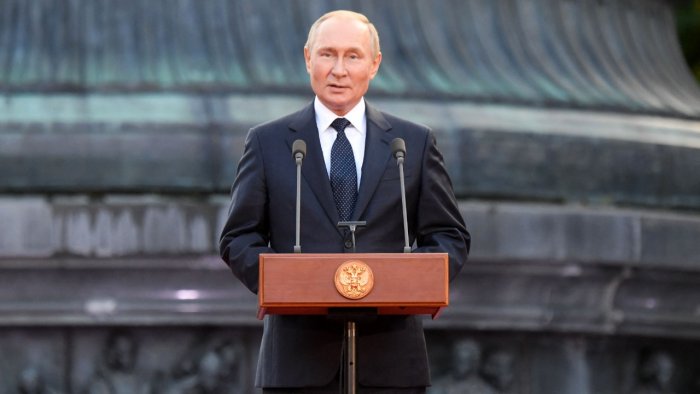
AFP | by Sylvie LANTEAUME and Paul HANDLEY
President Vladimir Putin’s threat to use a nuclear weapon in Ukraine if Russian “territorial integrity” is threatened has sparked deep discussion in the West as to how it would respond.
“Those who are trying to blackmail us with nuclear weapons should know that the wind can also turn in their direction,” Putin said, adding: “This is not a bluff.”
However analysts aren’t convinced the Russian president is willing to be the first to unleash nuclear weapons since the US bombed Japan in 1945.
AFP spoke with several experts and officials about the possible scenarios that could arise should Russia carry out a nuclear attack.
What would a Russian nuclear attack look like?
Analysts say Moscow would likely deploy one or more “tactical” or battlefield nuclear bombs.
These are small weapons, ranging from 0.3 kilotons to 100 kilotons of explosive power, compared to the 1.2 megatons of the largest US strategic warhead or the 58 megaton bomb Russia tested in 1961.
Tactical bombs are designed to have a limited impact on the battlefield, compared to strategic nuclear weapons which are designed to fight and win all-out wars.
But “small” and “limited” are relative: The atom bomb the US dropped on Hiroshima in 1945 to devastating effect was just 15 kilotons.
What would Moscow target?
Analysts say Russia’s goal in using a tactical nuclear bomb in Ukraine would be to frighten it into surrender or submission to negotiations, and to divide the country’s Western backers.
Mark Cancian, a military expert with the CSIS International Security Program in Washington, said Russia would not likely use nuclear weapons on the front lines.
Capturing 20 miles (32 kilometers) of territory could require 20 small nuclear bombs — small gains for the huge risks of introducing nuclear weapons and nuclear fallout.
“Just using one will not be enough,” Cancian said.
Moscow could instead send a strong message and avoid significant casualties by detonating a nuclear bomb over water, or exploding one high over Ukraine to generate an electromagnetic pulse that would knock out electronic equipment.
Or Putin could opt for greater destruction and death: attacking a Ukraine military base, or hitting an urban center like Kyiv, generating mass casualties and possibly killing the country’s political leadership.
Such scenarios “would likely be designed to split the NATO alliance and global consensus against Putin,” Jon Wolfsthal, a former white House nuclear policy expert, wrote Friday on Substack.
But “it is unclear if it would succeed, and could just as easily be seen as desperation as resolve,” he said.
Should the West respond with nukes?
The West has remained ambiguous on how it would respond to a tactical nuclear strike, and the choices are complicated.
The United States and NATO do not want to appear weak in front of an implicit nuclear threat.
But they also would want to avoid the possibility that the war in Ukraine — not a NATO member — could escalate into a much broader, devastating global nuclear war.
Experts say the West would have no option but to respond, and that a response should come from NATO as a group, rather than the United States alone.
Any response should “ensure both that Putin’s military situation did not improve from such a strike, and that his political, economic and personal position suffered as a result,” said Wolfsthal.
The United States has positioned about 100 of its own tactical nuclear weapons in NATO countries and could respond in kind against Russian forces.
That would demonstrate resolve and remind Moscow of the danger of its actions, according to Matthew Kroenig of the Atlantic Council.
However, he said, “it might also provoke a Russian nuclear reprisal, raising the risk of a larger nuclear exchange and further humanitarian disaster.”
Another risk is that some NATO members might reject a nuclear response, serving Putin’s aims of weakening the alliance.
Give Ukraine the ability to attack Russia?
Answering a Russian nuclear attack in a more conventional military or diplomatic way, and supplying Ukraine with more lethal arms to attack Russia, could be more effective, experts say.
“Russian nuclear use might provide an opening to convince countries that have so far been reluctant — such as India and possibly even China — to participate in escalating sanctions,” said Kroenig.
In addition, the United States could offer Ukraine NATO aircraft, Patriot and THAAD anti-missile batteries, and ATACMS long-range missiles that could be used by Ukraine forces to strike deep inside Russia.
“Whatever restrictions we have on Ukraine forces — and I think we have some restrictions — I think we take all of those off,” said Cancian.
International
Federal immigration agents kill man in Minneapolis, sparking protests and outrage

Federal immigration agents shot and killed a 37-year-old Minneapolis man during an operation on Saturday, authorities confirmed, sparking new protests and deepening outrage over federal immigration enforcement in the city.
The victim, identified as Alex Jeffrey Pretti, was a U.S. citizen and intensive care nurse who worked at a Veterans Affairs hospital and was widely respected in his community, according to colleagues and news reports.
Officials said the shooting occurred during a targeted immigration raid in south Minneapolis. The Department of Homeland Security (DHS) described the incident as an act of self-defense by agents who believed the man posed a threat.
However, videos reviewed by multiple outlets and eyewitnesses show Pretti holding a phone and not displaying a weapon before being pepper-sprayed, tackled by agents and then shot multiple times, raising serious questions about the official account.
The killing comes amid a broader federal immigration enforcement operation in the city and follows another controversial shooting in early January in which Renée Good, a 37-year-old U.S. citizen, was fatally shot by an ICE agent, leading to widespread protests and criticism of federal tactics.
International
Delcy Rodríguez seeks political agreements after Maduro’s ouster
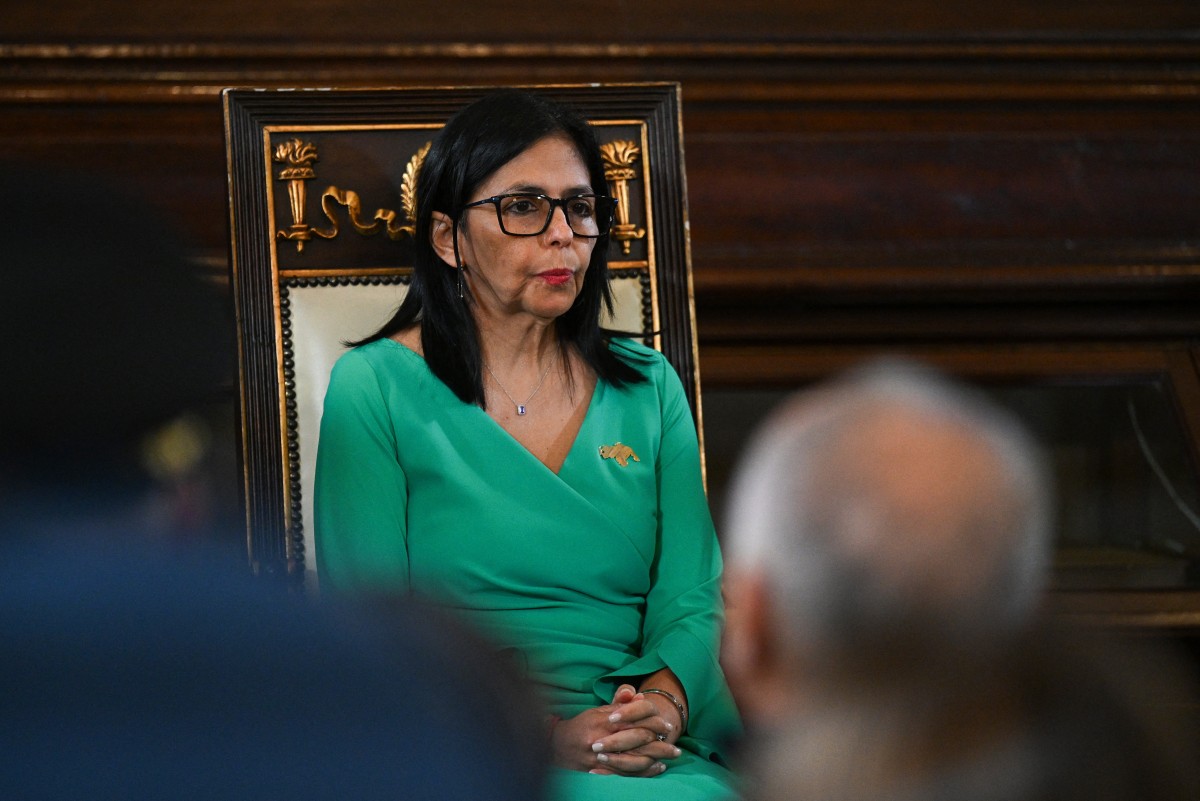
Venezuela’s interim president, Delcy Rodríguez, on Saturday called for “reaching agreements” with the opposition to achieve “peace” in the country, which the United States says it now controls following the military operation that removed President Nicolás Maduro from power.
Rodríguez, who previously served as Maduro’s vice president, assumed interim leadership after the leftist leader was captured on January 3 during a military incursion that left nearly 100 people dead.
In her first public statements since taking office, Rodríguez signaled a shift in the strained relationship between Caracas and Washington, while also committing to the release of a “significant number” of political prisoners.
“There can be no political or partisan differences when it comes to the peace of Venezuela,” Rodríguez said during an address in the coastal state of La Guaira, broadcast on state television VTV.
“From our differences, we must speak to one another with respect. From our differences, we must meet and reach agreements,” she added.
The day before, Rodríguez instructed the head of Parliament — her brother Jorge Rodríguez — to convene talks with various political sectors in the country aimed at achieving “concrete and immediate results.”
International
Bogotá and Quito Seek Dialogue After Tariffs and Power Cut Escalate Tensions
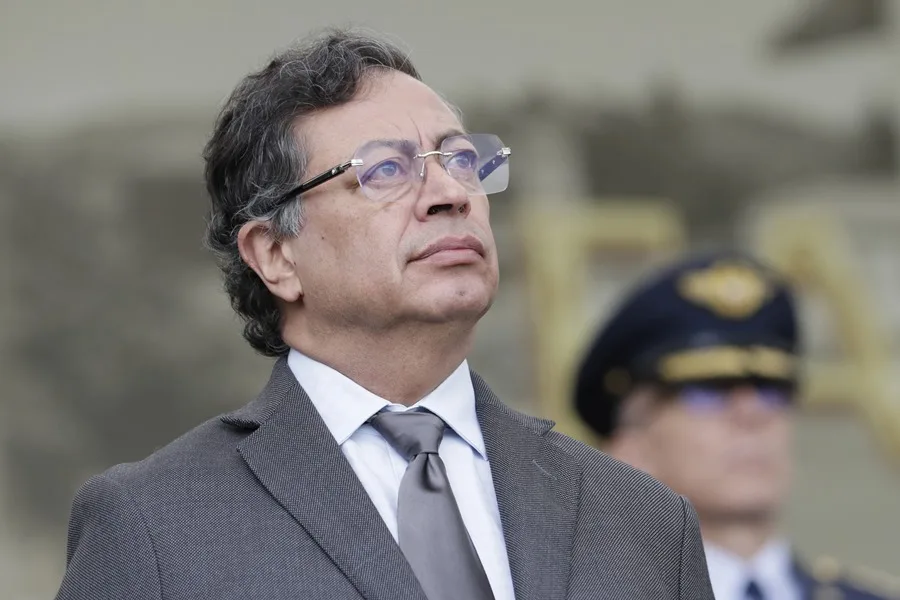
Bogotá and Quito will hold an emergency bilateral summit next week amid recent developments that have strained relations between the two countries.
Tensions escalated this week after Ecuadorian President Daniel Noboa unexpectedly announced a 30% tariff on Colombian imports. Colombia responded with a reciprocal measure, imposing the same tariff on around 20 Ecuadorian products and suspending electricity exports to Ecuador.
Aware that electricity imports are critical to easing Ecuador’s recent energy crises, Quito further imposed a 30% tariff on the transportation of Colombian oil through its territory.
However, recent statements from the Ecuadorian government suggest that dialogue between the two sides has intensified in recent hours. Ecuador’s Minister of Foreign Affairs, Gabriela Sommerfeld, confirmed that active conversations are under way.
In Colombia, segments of the business sector have welcomed the prospect of negotiations. The National Business Council (Consejo Gremial Nacional, CGN), for instance, urged both governments to restore commercial relations, warning that the dispute “puts jobs and regional economic stability at risk.”
-
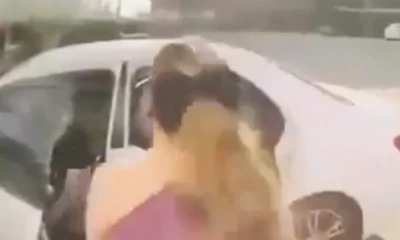
 International5 days ago
International5 days agoMexican influencer “La Nicholette” kidnapped in exclusive area of Culiacán
-

 International4 days ago
International4 days agoTrump to invite Venezuela’s interim president Delcy Rodríguez to Washington
-

 Central America4 days ago
Central America4 days agoMazatenango Carnival cancelled amid State of Siege in Guatemala
-

 International5 days ago
International5 days agoMajor winter storm to blanket U.S. and Canada with snow, ice and arctic cold
-

 International4 days ago
International4 days agoMarkets rise as Trump halts Europe tariffs and floats Greenland agreement framework
-
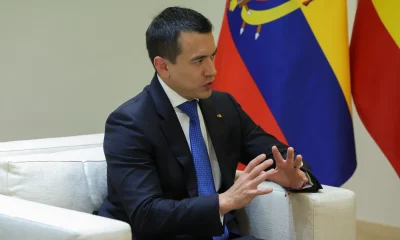
 International5 days ago
International5 days agoColombia slams Ecuador’s 30% tariff as ‘economic aggression’
-

 International5 days ago
International5 days agoTrump announces preliminary NATO agreement on Greenland, suspends tariffs on Europe
-

 International4 days ago
International4 days agoVenezuela’s interim president predicts 37% increase in revenues for 2026
-

 Internacionales3 days ago
Internacionales3 days agoMajor winter storm threatens “catastrophic” ice and snow across much of the U.S.
-

 International2 days ago
International2 days agoTrump-Era Defense Plan Prioritizes Border Security and Scales Back Global Commitments
-

 International4 days ago
International4 days agoJapan reopens Kashiwazaki-Kariwa Plant despite public concerns
-

 International4 days ago
International4 days agoFour minors killed in deadly clash between FARC dissidents in Colombia’s Amazon
-

 Central America3 days ago
Central America3 days agoGuatemala’s president rules out negotiations with inmates after prison riots
-

 International3 days ago
International3 days agoGuatemala considers sending high-risk gang members to military prisons
-

 International2 days ago
International2 days agoBogotá and Quito Seek Dialogue After Tariffs and Power Cut Escalate Tensions
-
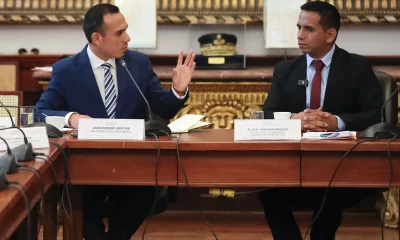
 International5 days ago
International5 days agoJosé Jerí claims destabilization attempt after videos of secretive meetings surface
-

 International23 hours ago
International23 hours agoDelcy Rodríguez seeks political agreements after Maduro’s ouster
-

 International3 days ago
International3 days agoRights group says over 5,000 killed in Iran protests, mostly civilians
-

 International23 hours ago
International23 hours agoFederal immigration agents kill man in Minneapolis, sparking protests and outrage


























